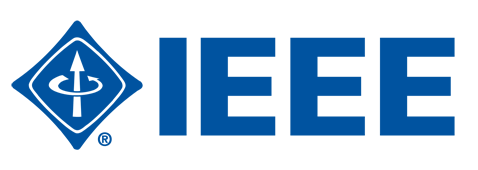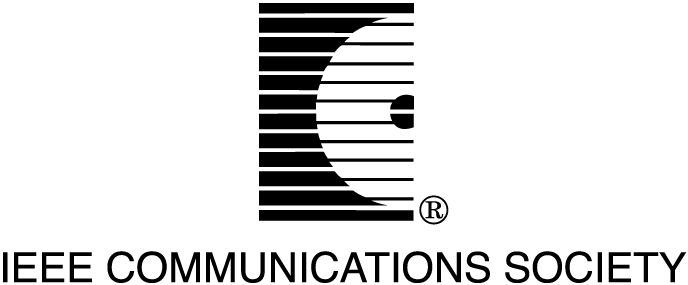Call for papers
March 6-8, 2012 - Westin New Orleans Canal Place, New Orleans, LA
The second conference, CogSIMA 2012 continues and expands the research domain on situation management that was established by the first conference CogSIMA 2011 held in Miami, Florida, USA. The aim of this conference is to provide a venue for presenting scientific results of interdisciplinary studies of complex, heterogeneous dynamical systems that include humans, physical systems, computer agents and networks of such systems whose behaviors depend on situation. Examples of such systems include human-controlled and monitored ad hoc communication mobile networks, social networks, physical and cyber security systems, disaster monitoring and recovery systems, epidemic monitoring and control, intelligent transportation systems, financial and investment services, and tactical and operational battlefield command and control systems. Common to these systems is the need to adequately perceive, reflect and act according to the situational changes happening both in the surrounding world and within the systems themselves. The amounts of information that needs to be processed in order to derive decisions overwhelm both the human cognitive capabilities and the computer processing power. Consequently, there is a need to develop new situation awareness and decision support approaches of augmenting the cognitive capabilities of working collaboratively humans and computer agents.
These agents, both humans and machines, are faced with collaborative solving of various problems: (1) selecting which data is relevant to the objectives and actively requesting or searching for additional information, (2) integrating disparate data sources into a coherent information representation and a consistent model of the world, (3) inferring relations among various elements of the model, including prediction of the future states of the world, (4) assessing uncertainties associated with decisions, (5) learning new models and/or model elements, (6) valuating particular current and/or future states of the world according to some metrics, (7) identifying desirable states of the world, selecting actions that could lead to the desirable states. (8) communicating and interacting with other agents, and engaging into the process of collective situation awareness and decision-making.
While this process is complex, it is further complicated by the fact that each of the steps mentioned above depend on the situation. A specific item of information is relevant in one situation but is irrelevant in another. A given model of the world is adequate in one situation, but is not appropriate in another. A given set of logical conditions implies a given relation holds in a given situation, but not in another situation. A given state is desirable in one situation but is harmful in another. A given sequence of actions leads to a given state in one situation, but not in another.
The solution to the above-mentioned problems requires multi-disciplinary research that addresses at least the topics listed below.
Conference Scope
- Studies of concepts of situation, context, event, goal, intention, action, activity, behavior in the context of hybrid human-computer systems
- Theories of situational awareness in human-computer systems
- Situation dependent data integration
- Modeling of situations – model acquisition, construction, adaptation and learning
- Models of human-machine collaboration, hybrid cognition
- Situation perception, comprehension, tracking, prediction and management
- Collaborative decision support
- Theories of relevance
- Methods of planning actions to achieve desired situations
- Approaches to spatial and temporal reasoning, reasoning about goals, intentions and actions, and collective reasoning by teams of human and/or machine agents
- Advancement of situational control theory, including situational feedback, goal assessment and optimization, situational games with nature and adversaries, reflective situational control, and collective situational behavior
- Metrics and evaluation of performance of hybrid human-computer systems
- Applications, Case Studies, Systems, Platforms and Tools
- Emergency situation management
- Tactical operations
- Semantic web systems
- Communication, information, social and composite networks
- Intelligent transportation systems
- Medical and health care
- Cyber security
- Other applications
Important Dates
| Paper submission | November 4, 2011 NEW DATE |
| Acceptance notification | December 20, 2011 |
| Camera ready paper | February 1, 2012 |
Submission Guidelines
All papers must represent original and unpublished work that is not currently under review. Each paper will be reviewed by at least three independent referees. Papers will be evaluated according to their significance, originality, technical content, style, clarity, and relevance to the conference. At least one author of each accepted paper is expected to attend the conference.
Two types of paper submissions will be accepted:
- Oral presentation paper (max. 8 pages): a research paper describes new results that advance the state-of-the-art in basic or applied research.
- Poster presentation paper (max. 4 pages): a research paper describes a work in progress
Submitted papers should clearly indicate on the first page the submission type. Authors of accepted papers will need to sign an IEEE copyright release form and present their paper at the conference. The conference proceedings will be digitally published by IEEE Communications Society and will be included into the IEEE Explore Digital Library.
All paper submissions will be handled electronically in EDAS via the CogSIMA 2012 submission page. Authors should prepare a Portable Document Format (PDF) version of their full paper in 2-column style (main text in 10-point size) including figures and correct margins. Please use the stylesheet templates provided by IEEE to assure that your proposal is in line with our guidelines.
For more information contact cogsimainfo@ieee.org.
To be published in the IEEE 2012 CogSIMA Conference Proceedings and IEEE Xplore®, an author of an accepted paper is required to register for the conference at the full (member or non-member) rate and the paper must be presented at the conference. Non-refundable registration fees must be paid prior to uploading the final IEEE formatted, publication-ready version of the paper. For authors with multiple accepted papers, one full registration is valid for up to 3 papers. Accepted and presented papers will be published in the IEEE 2012 CogSIMA Conference Proceedings and in IEEE Xplore®.


